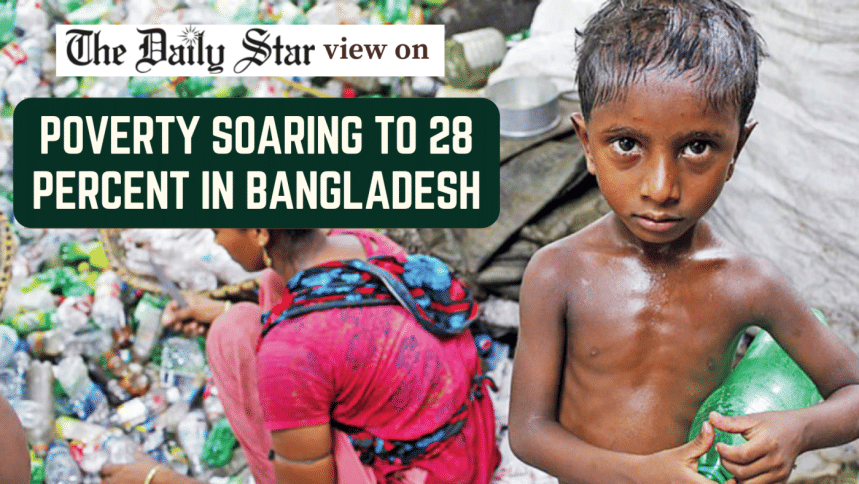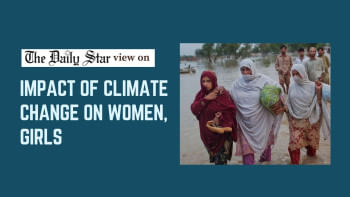Rising poverty needs proper responses

We cannot overstate the seriousness of the latest findings on poverty and indebtedness in Bangladesh. According to a study by the Power and Participation Research Centre (PPRC), the national poverty rate now stands at nearly 28 percent—up from 18.7 percent in 2022. Extreme poverty, too, has risen from 5.6 percent to 9.35 percent during the same period. These figures highlight widening economic distress in the country, especially for low-income households, with their growing dependence on debt flagged as a major vulnerability. Average household debt in mid-2025 was Tk 189,033—45 percent higher than the average household savings of Tk 130,728. For the poorest 10 percent, debt stands at Tk 62,767, more than three times their savings. In stark contrast, the richest 10 percent maintain far higher savings than debts, reinforcing the inequality gap.
As per the PPRC study, borrowing is largely being used for essentials, such as food, healthcare, and basic survival, not asset-building. Nearly one-third of debt is spent on household consumption, followed by medical expenses and housing repairs. Over half of the surveyed households reported at least one chronically ill member, underlining how healthcare costs are pushing families deeper into a debt trap.
To address this situation, we need a people-centred approach to development that prioritises their well-being, equity, and inclusivity. Five areas of growing vulnerability were identified in the PPRC report: debt burden, food insecurity, chronic illness, non-sanitary latrine use, and poverty in female-headed households. These challenges demand immediate policy attention and targeted interventions. While some macroeconomic reforms are currently underway, these are not enough. The government must continue to focus on reducing food prices and improving the supply chain to ease inflationary pressures, which hurt the poor disproportionately. At the same time, we need a comprehensive social protection framework that includes affordable healthcare, debt-relief mechanisms, and sustainable financial assistance for the most vulnerable.
Creating more jobs is also critical. Without sufficient employment opportunities, rising poverty and debt burden will only worsen. Business-friendly policies, political neutrality in trade, and proper regulatory reforms are necessary to restore confidence in the economy and attract both domestic and foreign investment. Bangladesh has only five years left to meet its SDG targets. Allowing poverty and inequality to deepen further will clearly derail progress. Our policymakers, therefore, must act urgently to not just stabilise the macroeconomy but also to protect citizens from the cycle of debt and deprivation.

 For all latest news, follow The Daily Star's Google News channel.
For all latest news, follow The Daily Star's Google News channel. 








Comments